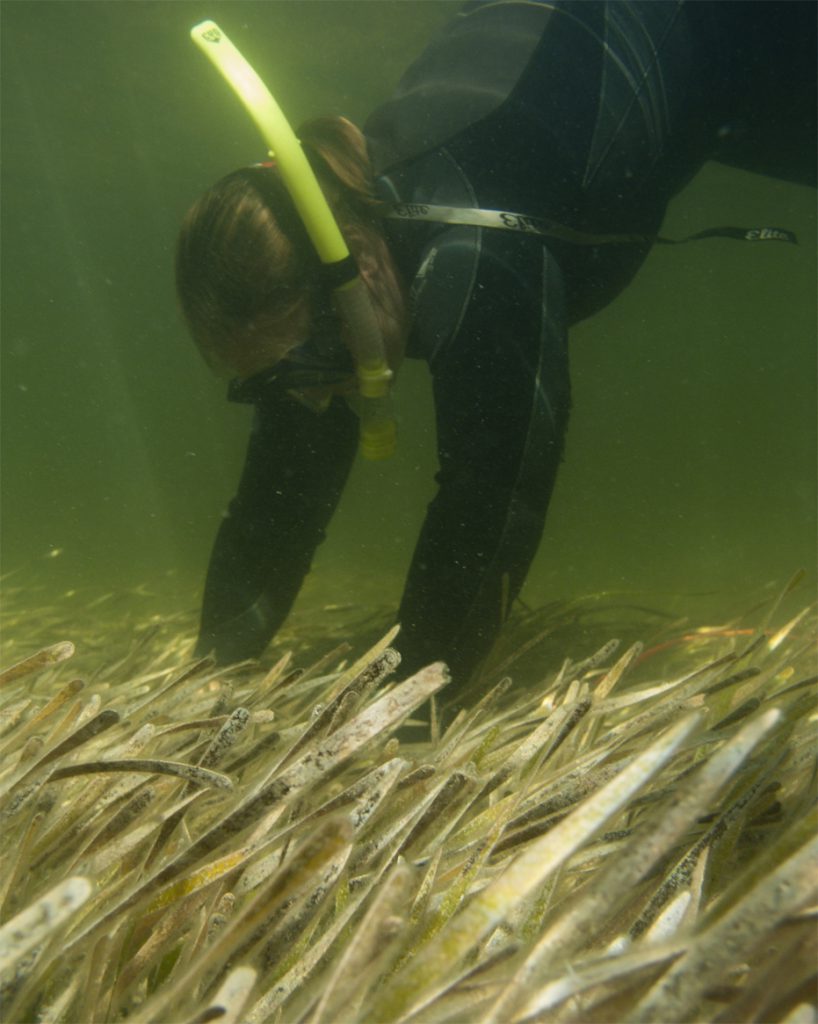Soon snorkelers will begin canvassing the floor of Charlotte Harbor. They’ll be on a scavenger hunt of sorts—a hunt for data.
The data they collect will help scientists get a better picture of the health of the harbor, and will ultimately help communities make more informed decisions about how the resource is managed, said Betty Staugler, who is leading the University of Florida citizen science project.
Training for the Eyes on Seagrass program is set for April 11, from 7 to 8:30 p.m. at the Charlotte County Environmental Campus, 25550 Harborview Rd., Port Charlotte, FL 33980.
Citizen scientists will collect data during the first survey, April 12 and 25, and a second survey, July 16 and 29, in upper Charlotte Harbor along the east and west shores.
They will focus on seagrass and seaweed because these two plants provide clues about the status of the harbor, said Staugler, a Florida Sea Grant agent with the UF Institute of Food and Agricultural Sciences Extension in Charlotte County.
“Seagrasses reduce shoreline erosion, oxygenate the water, capture carbon, trap sediments and improve water clarity,” she said. “Seagrasses also form extensive structural habitat that supports a diverse array of species, including economically valuable fishes and invertebrates. About 85 percent of the species targeted in commercial and recreational fisheries in the Charlotte Harbor estuary depend on seagrasses for at least part of their life cycle.”

So, when seagrasses are thriving, that’s good news for the entire ecosystem. Seaweed, on the other hand, does better under conditions that are not as favorable to seagrasses, Staugler said.
“When there are more nutrients in the harbor, seaweeds have a competitive advantage over seagrasses,” Staugler explained. “Unattached seaweeds also shade rooted seagrasses, reducing their ability to photosynthesize and ultimately shortening their growing season. From an ecosystem perspective, the shift from seagrass to seaweed could have cascading impacts on animals dependent upon seagrass for food and shelter.”
Volunteers will receive monitor gear and will work in teams of three anytime between April 12 and 25, and July 16 and 29 to survey seagrass and seaweed in upper Charlotte Harbor along the east and west shores. Volunteers must form their own teams (at least 3 individuals) and provide their own boat transportation, water shoes, mask, snorkel and fins. 20 survey teams are needed.
For more information about the program or to preregister your team, contact Betty Staugler at staugler@ufl.edu or call 941-764-4346.
-30-
The mission of the University of Florida Institute of Food and Agricultural Sciences is to develop knowledge relevant to agricultural, human and natural resources and to make that knowledge available to sustain and enhance the quality of human life. With more than a dozen research facilities, 67 county Extension offices, and award-winning students and faculty in the UF College of Agricultural and Life Sciences, UF/IFAS works to bring science-based solutions to the state’s agricultural and natural resources industries, and all Florida residents. Visit the UF/IFAS web site at ifas.ufl.edu and follow us on social media at @UF_IFAS.
 0
0
